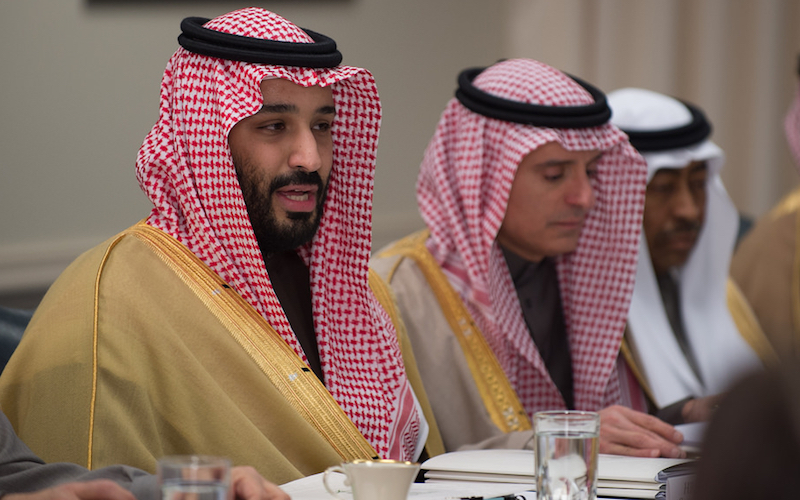
Trump Administration Sees Bahraini Crisis Through Saudi Lens
Throughout 2017, Bahrain’s six-year-old crisis has sharpened. Political space is narrowing as the authorities in Manama have upheld the dissolution of al-Wefaq Islamic Society (the country’s dominant Shi’ite opposition society) and kept its leader, Ali Salman, in prison as punishment for “inciting hatred and disobedience and insulting public institutions.” This month, the king of Bahrain approved a constitutional amendment that permits the government to try civilians in military trials. In January, Bahrain executed three Shi’ites found guilty of killing policemen. Meanwhile, violence has increased outside of the capital. In 2016, there were a dozen armed attacks on police and security forces in the country. As of last month that number had already reached 11 for 2017.
As tensions between Bahrain’s marginalized Shi’ites and Sunni rulers escalate, the royal Al Khalifa family feels emboldened by Donald Trump’s administration and its prioritization of security issues above human rights. Trump’s ascendancy to the White House comes as a major relief to Bahrain’s rulers whom Barack Obama’s administration repeatedly irked. The expulsion of Tom Malinowski from Manama following the assistant secretary of state for democracy, human rights, and labor’s meeting with al-Wefaq members in 2014 most clearly underscored tensions between Manama and the previous administration, which called on the Al Khalifa rulers to make concessions to elements of the country’s Shi’ite opposition.
Rather than pressuring Arab Gulf sheikdoms on governance issues, the new American president and his inner circle are determined to reassure US allies in the Gulf Cooperation Council (GCC) that Washington will take their concerns about Iran’s foreign policy more seriously while enhancing US-GCC coordination in the quest to counter Tehran’s expanding influence. This shift in Washington’s foreign policy may soon be evident in Yemen, where the Trump administration is weighing the pros and cons of supporting a Saudi-UAE effort to strike against the Houthi militants in Hodeidah, although it has yet to make this decision. The same holds true for Syria, where on April 7 the US military fired 59 cruise missiles against one of the Iranian-backed regime’s air bases in response to the April 4 chemical attack in the Idlib area.
Although not enmeshed in a gruesome civil war, Bahrain is another area in the Arab world where the new administration is aligning Washington more closely with Riyadh to push back Iran’s extended influence. The Saudi government understands Bahrain’s Shi’ite protestors and activists to be operating on behalf of Iran’s regional ambitions. The Trump administration seems to share Riyadh’s view on this matter.

